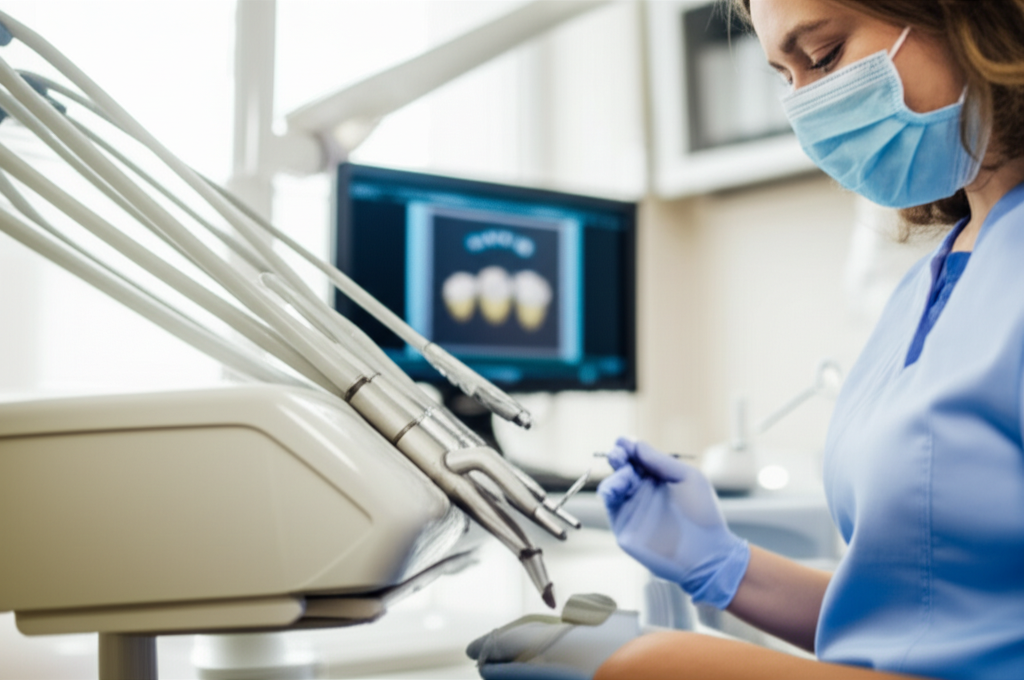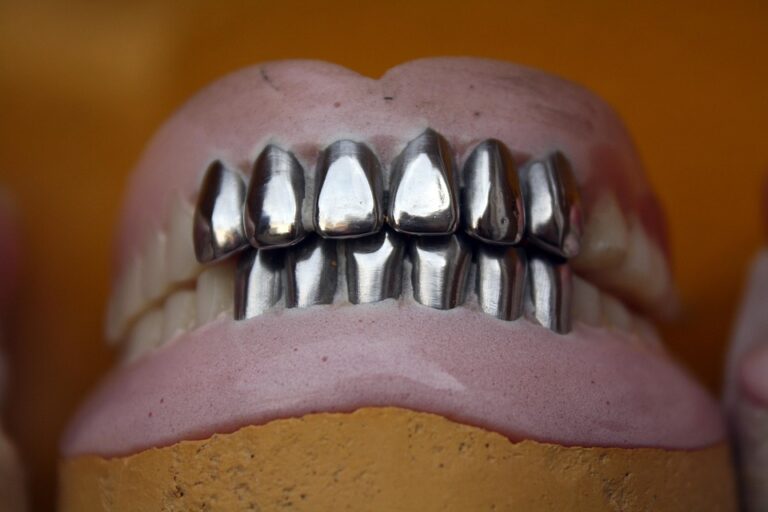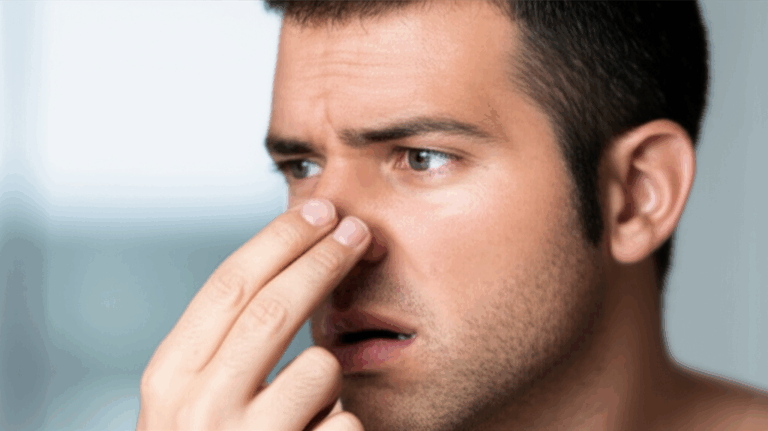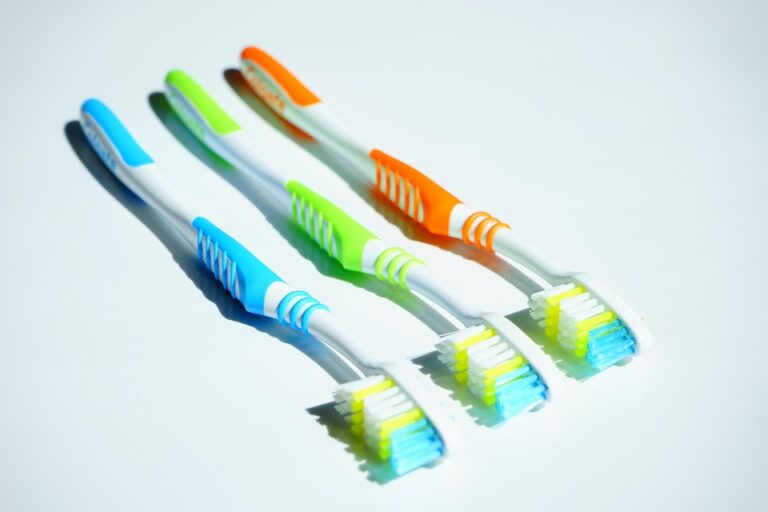
Can a Dental Hygienist Become a Dentist? (Yes, Here’s Your Roadmap)
Have you ever wondered if working as a dental hygienist is just one step on a bigger journey? Maybe you’re thinking about becoming a dentist and moving from cleaning teeth to being the one who makes big decisions. If so, you’re not alone. Imagine going from making people comfortable in the chair to being the person who reads X-rays, finds problems, and plans all the care. Can you really switch from dental hygiene to dentistry? The short answer: yes, you can become a dentist after being a dental hygienist – lots of people have done it.
But how do you actually make this change? What classes, tests, or rules will you face? Should you spend the time, money, and effort? This guide will explain everything you need to know — in plain language — so you can plan your next steps.
In This Article
- The Dental Hygienist vs. Dentist: What’s the Difference?
- The Roadmap: Prerequisites & Planning Your Path
- Applying to Dental School: Your Guide to Success
- What Dental School is Really Like (and How Hygienists Do)
- Financing Your Journey: Costs, Aid, and the Big Picture
- Life After Dental School: Licenses, Careers, and Beyond
- Should You Make the Leap? The Pros and Cons
- FAQs for Aspiring Hygienist-Dentists
- Key Takeaways: Your Next Steps
The Dental Hygienist vs. Dentist: What’s the Difference?
What Does a Dental Hygienist Do (RDH)?
Let’s talk about what you know. Dental hygienists (RDHs—Registered Dental Hygienists) keep people’s teeth healthy. They are key to any dental office. They:
- Clean teeth and get rid of plaque and tartar
- Teach people about good and bad brushing and flossing habits
- Take dental X-rays
- Check for gum diseases
- Give tips on food and habits that help your teeth
- Help calm patients and keep things friendly
If you’re a hygienist, you pay attention to details, try to keep patients comfortable, and hope everyone leaves healthier.
What Does a Dentist Do (DDS/DMD)?
Now, step into a dentist’s job. Dentists—whether they have a DDS or DMD (it’s just a different name for the same degree)—have more things to do. The dentist is like the leader of oral care; the hygienist is the supportive coach.
A dentist:
- Finds problems and diseases
- Makes custom care plans
- Fixes teeth (does fillings, crowns, root canals, extractions)
- Does some surgeries (especially if they train for it)
- Uses high-tech tools
- Works with hygienists, assistants, and even other types of doctors
- Runs the office (or hopes to own one someday)
Both jobs are important, but the dentist is in charge of all care and the business side.
Why Consider the Change?
You might really enjoy working as a hygienist and still wonder: Can I do more? Here’s why you might want to try:
- Do More: You won’t be limited to cleaning; you can find problems, plan, fix, and lead.
- More Control: As a dentist, you decide how care happens and can own your own office.
- Much Higher Pay: In the U.S., dentists usually make over twice as much as hygienists.
- More to Learn: Every day is different and makes you think more.
- New Job Options: Want to teach, do research, or work in public health? Being a dentist gives you more choices.
It’s a big choice though. Is it worth it? Let’s keep going.
The Roadmap: Prerequisites & Planning Your Path
School Basics: Your Degree & Science Classes
First, you need the right school background. Here’s what you’ll need:
- Bachelor’s Degree: Most U.S. dental schools want you to have a four-year bachelor’s degree. If you started as an associate’s degree hygienist, you need to finish a bachelor’s degree — often another 2-3 years, depending on what classes you already took.
- Key Science Classes: Dental schools want to see these:
- General and Organic Chemistry (with lab)
- Biology
- Physics
- Biochemistry
- Microbiology
- Anatomy and Physiology
Dental schools look for a GPA of 3.2 or higher (on a 4.0 scale), but top schools may want 3.5 or more.
Tip: If your grades aren’t the best, a strong DAT score and good dental experience can help.
The Dental Admission Test (DAT)
The DAT is your entry exam. It’s kind of like the SAT for college, but for dental school. You’ll be tested on:
- Science (Biology, General and Organic Chemistry)
- Seeing shapes and patterns (Perceptual Ability)
- Reading
- Basic math
Dental schools look closely at your DAT score. Try to get a 20 or more (out of 30) to be competitive.
Clinical Experience & Exposure
As a dental hygienist, you already have real patient care under your belt. This is a big plus. You should also:
- Shadow Dentists: Spend time watching general and specialist dentists to see what their job is like.
- Volunteer: Show you care about helping the public.
- Dental Research: If you can, join some dental research projects.
- References: Good letters from dentists, teachers, or people who know your work can help a lot.
Putting Your Application Together
You’ll apply using something called AADSAS (Associated American Dental Schools Application Service). You’ll need:
- A personal statement about “Why dentistry? Why now?”
- School transcripts
- DAT scores
- Letters of recommendation
- List of activities and experience
If you need help, talk to a pre-dental advisor for advice. Getting everything ready makes you look good to schools.
Applying to Dental School: Your Guide to Success
The AADSAS Application
AADSAS is a one-stop way to apply to most dental schools in the U.S. Here’s what you send:
- School transcripts from every college you attended
- DAT results
- Your experiences, shadowing, volunteering, and research
- Letters of recommendation
- Personal info and essays
Some schools will ask you for extra “secondary” applications with more essay questions.
Extra Applications & Interviews
If you do well on the first part, you’ll get interview invitations. Get ready for regular interviews and also “multiple mini-interviews” (MMIs). They want to see:
- How well you talk with people
- How you handle tough situations or stress
- Why you want to be a dentist, especially if you’re not a typical student
- Your best stories from your hygiene experience
Just be honest, talk about what you really feel, and show why your background is a good thing!
Timeline & How Hard It Is
- Applications open: May-June, about a year before you want to start
- Apply early: Most schools accept people as they go, so early is better
- Average chance of getting in: About 40-50% overall, but top schools might only say yes to 5-10%
- Former hygienists: If you have the right stuff, you might stand out as an older, experienced, and focused candidate.
What Dental School is Really Like (and How Hygienists Do)
Program Length
Dental school is long. You’ll need:
- Four years of full-time classes, labs, and practice — it’s not easy.
What You’ll Learn
School mixes class time, working with fake teeth, and then working with real patients.
- First 2 years: Basic science, dental terms, and working on fake teeth
- Years 3-4: Taking care of real patients, rotating between different dental areas
You’ll learn to:
- Diagnose mouth problems
- Plan treatments for everything from small cavities to big repairs
- Do fillings, surgeries, and more
Your Advantage as a Hygienist
Coming from hygiene school is a big help:
- Hands-On: You know how to work with people, tools, and stay clean
- Talking: You’re used to putting patients at ease
- Office Life: You know how an office runs and how to be a team player
- Dental Talk: Dental terms won’t be so hard
Some former hygienists even help classmates who have never worked with patients before!
Things That Are Hard
It’s still tough:
- School Load: The science classes are challenging and move fast
- Money Problems: You might not earn much money during school (see below)
- Time Pressure: Constant classes and work can be stressful
- Personal Sacrifice: You may need to move, miss events, and deal with stress
But your hard work from hygiene school will help. Others have done it — and you can too.
Financing Your Journey: Costs, Aid, and the Big Picture
What It Costs
Let’s be direct — dental school costs a lot. How much?
- School/Living Costs: $200,000 to $600,000+ (for four years of tuition, books, tools, insurance, and everyday living)
- Bachelor’s Classes: Add $10,000 to $50,000+ if you need more classes before dental school
A public school, especially in your home state, can help you save money.
Ways to Pay
You don’t have to pay it all yourself:
- Federal Loans: Most students borrow money from the government
- Private Loans: Compare for the best deal
- Scholarships: Some schools, dental groups, and local groups give out scholarships
- Military: The U.S. military might pay for school if you serve after
- “Pay as you earn”: Some loan programs base payments on what you make after school
Is It Worth It?
Here’s the good news. While hygienists make good money (about $83,000/year), dentists can start around ~$164,000-$200,000+ — even more if they own a practice or specialize. Over an entire career, the extra income adds up.
Just remember:
- Dentists finish with student loans (often $250,000 to $500,000+)
- You won’t earn much (or anything) in school
Most hygienists who become dentists say it’s worth the sacrifice, but it’s a personal choice.
Life After Dental School: Licenses, Careers, and Beyond
Getting Licensed
You’re not done after graduation. You’ll need to:
- Pass National Dental Board Exams (NBDE/INBDE)
- Pass a Clinical Exam (ADEX or similar)
- Get State License: Rules are different by state, so check yours
This lets you legally work as a dentist.
General Dentist or Specialist
After dental school, you can work as a general dentist, or get more training to specialize. These include:
- Braces (Orthodontics)
- Surgery (Oral Surgery)
- Root canals (Endodontics)
- Gum care (Periodontics)
- Kids’ teeth (Pediatric Dentistry)
- Replacing teeth (Prosthodontics)
Special training adds 2-6 years and can mean higher pay.
Owning or Joining a Practice
Many want to own their own office. This means more control and higher pay. Others join group practices, teach, research, or help in public health — there are lots of choices.
If you’re interested in the world of dental crowns, bridges, and veneers, learning how a crown and bridge lab works can keep you excited about new ideas in dentistry.
Should You Make the Leap? The Pros and Cons
The Good Parts
- More Skills & Freedom: You get to diagnose, fix, and lead a team, not just clean teeth.
- Better Pay & Safety: Dentists usually make more, especially if they own their office.
- More Job Choices: Teaching, research, special training, public health, or running your own business.
- Help Patients More: You take care of the whole problem, not just maintenance.
Things To Think About
- Big Student Loans: School isn’t cheap, and debt can feel scary.
- Takes a Long Time: Count on 5-8 more years if you don’t already have a bachelor’s degree.
- Stressful and Hard: Both the schoolwork and emotional effort are big.
- Lost Income: You won’t be making hygienist money during school.
- Physical Work: Both jobs can be hard on your body.
Story From Real Life
Maria was a hygienist for over 10 years. At 35, she wanted a new challenge. She finished her needed classes while working part-time, studied hard for the DAT, and got into dental school. She missed family time and worried about money, but today she’s a dentist and is happy she made the change.
FAQs for Aspiring Hygienist-Dentists
Can I get advanced placement in dental school as a hygienist?
Not usually. Dental schools don’t skip you ahead, but your experience will help with hands-on work.
Do hygiene credits transfer to dental school?
Only science and regular classes may count for prerequisites. Hygiene classes themselves don’t count toward the DDS/DMD.
What’s the average age of a dental student who was a hygienist?
Older students — often late 20s to 40s. Typical dental students are 24-25.
Is dental school harder than hygiene school?
Yes, most people say dental school covers much more material. You’ll go deeper into science, planning, hands-on work, and even business. Your hygiene experience helps, especially in real clinics.
Key Takeaways: Your Next Steps
Here’s a quick list to help you decide if becoming a dentist is your next step:
- Yes, hygienists can become dentists. Many do, and use their skills and experience to their advantage.
- It takes time. Plan for 5-8 years more if you don’t already have a bachelor’s degree.
- Strong grades and a good DAT score are super important.
- Your hygiene experience is helpful. It can make you a better student and dentist.
- Look at the pros and cons. Think about the cost, time, debt, and hard work.
- Success is possible. Most hygienists who become dentists are happy they made the choice once it’s over.
Tip: If you’re ready, talk to a pre-dental advisor, start planning your classes, and find dentists to shadow. You might also want to check out the latest tools and technology at your local or online digital dental lab to stay motivated about the future.
And remember: Every dentist started as a beginner—and sometimes as a hygienist. If you want more control, more skills, and the chance to make a bigger difference, making the switch might be right for you.
Still deciding? Keep learning! Check out more about dental care or teeth information to grow your knowledge as you think things over.
Final Thought
The biggest changes start with a small question: “Could I do that?” If you’re asking if you could become a dentist after being a hygienist, the answer isn’t just yes—it’s “maybe you’re more ready than you think.” Look at your options, talk to people who’ve done it, and trust yourself. Your future patients—and your future self—will be glad you did.
Sources: Data from the American Dental Education Association, U.S. Bureau of Labor Statistics, and real dental professionals.








